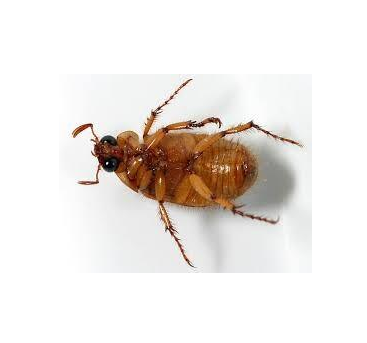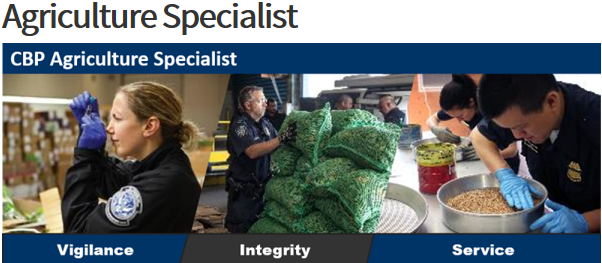
U.S. Customs and Border Protection (CBP) agriculture specialists have recently been intercepting more and more pests at ports of entry.
More recently, Port Manatee intercepted several significant pests over the last few weeks—including a first-in-state and second-in-state interception—as part of operations to safeguard American agriculture in Central—Southwest Florida.
CBP agriculture specialists intercepted a type of Scarab beetle—Cyclocephala lurida coahuilae—within a shipment of malanga from Mexico. The U.S. Department of Agriculture (USDA) has confirmed that this is the first time this pest has been intercepted in Florida. Scarab beetles can pose a significant agriculture threat because they feed on a wide variety of important agriculture crops. Infestation can lead to a decrease in productivity and quality of crops, which can result in significant economic loss.
The same day CBP agriculture specialists intercepted an unusual actionable pest—an adult Heteroptera—while inspecting a shipment of dasheen arriving from Mexico. The U.S. Department of Agriculture (USDA) has confirmed that this is the second time that Tominotus inconspicuus Froeschner (Cydnidae) has been intercepted in Florida and the first time at Port Manatee. Commonly known as burrowing bugs, Tominotus sp. feed on plant roots.
Each year, highly-trained CBP agriculture specialists intercept tens of thousands of “actionable pests” nationwide. They are highly-trained and specialized professionals who work tirelessly, and they are constantly vigilant in targeting, detecting, and intercepting fruit and vegetable imports that may contain hidden threats, particularly pests and diseases, which can have devastating effects on both consumer safety and our nation’s economy.
“CBP agriculture specialists are ever-vigilant and work diligently every day to detect pests that could cause harm to America’s agriculture resources,” said Area Port Director Radames A. Torres.“CBP agriculture specialists prevent the entry of potential pests before they have a chance to do us harm.”
On a typical day in Fiscal Year 2018, CBP agriculture specialists intercepted 319 pests at U.S. ports of entry and 4,552 materials for quarantine: plant, meat, animal byproduct and soil. Learn more about how CBP protects our nation’s agriculture.
CBP agriculture specialists often intercept pests through ports of entry statewide such as Miami International Airport, Port Everglades, Miami’s Seaport and Port of Jacksonville. Due to its geographic significance, CBP’s national Centers of Excellence and Expertise for Agriculture & Prepared Products is based in Miami.
U.S. Customs and Border Protection operations in Florida include travel and trade facilitation and securing over 1,200 miles of the coastal border.
From CBP.


Chattooga Local News
Chattooga County Prepares for Inclement Weather, Offices Closed January 10th

Chattooga Schools
GNTC Foundation awards spring 2025 scholarships

Chattooga Local Government
Chattooga County Releases 2023 Financial Audit Findings and Recommendations

Chattooga Local Government
Chattooga County Schools to Host Public Hearings on HB 581 Opt-Out Decision

Bulloch Public Safety
12/23/2024 Booking Report for Bulloch County

Bulloch Public Safety
01/06/2025 Booking Report for Bulloch County

Bulloch Public Safety
01/02/2025 Booking Report for Bulloch County

Bulloch Public Safety
12/16/2024 Booking Report for Bulloch County

Bulloch Public Safety
12/12/2024 Booking Report for Bulloch County




